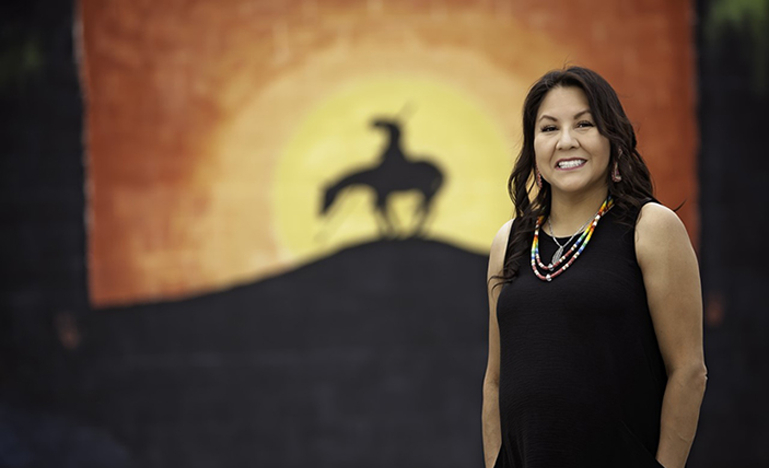A time for healing and support
Addressing the persisting legacy of Indian Residential Schools and sexual abuse.

Since the discovery of the 215 bodies of children who attended the Kamloops Tk’emlups Indian Residential School in 2021, Indigenous communities have been conducting their own searches of former Indian Residential School sites on their lands, seeking answers. Kimberly Murray was appointed as Independent Special Interlocutor for Missing Children and Unmarked Graves to help these communities unearth the truth.
The Truth and Reconciliation Commission called the residential school system “cultural genocide” in 2015, but the discovery of children’s bodies is more comparable to genocide committed by Canada against the Indigenous Peoples of Canada. In an article I wrote last year about the Pope’s apology for the abuses suffered in the Indian Residential School system, I emphasized the need for concrete actions to follow. I emphasized the need for concrete actions to accompany the apology. Our nations still need healing and support as we grapple with the profound impact of the numerous abuses inflicted within the system.
One enduring and deeply malicious legacy of the Indian Residential School system is the sexual abuse that continues to afflict our communities. We need only look at the correctional systems to witness the impact of inter-generational sexual abuse that persists within our communities and permeates our families. It creates and maintains coping mechanisms in the form of dysfunction, addiction and ongoing violence. It leads to suicide, family discord, a lack of effective parenting, and all the detrimental effects of sexual trauma on a community.
As a lawyer who represented claimants in the Independent Assessment Process (IAP), I heard thousands of former students testify about their experiences at the Indian Residential Schools. The TRC collected many of these stories during its eight-year mandate traveling across Canada to listen to survivors and gather their testimonies. A common theme in these stories was the prevalent sexual abuse, especially in Catholic-run schools.
The students who suffered abuse at the hands of priests, nuns, teachers, supervisors, and other adults often struggled to communicate their experiences in English or felt too ashamed to speak up. They often lacked support or anyone to confide in. In some cases, they did tell of their abuses, but nothing was done about it, and their pleas for help fell on deaf ears. What is even more painful for survivors to express is that the sexual abuse often continued among the students themselves in the unsupervised dormitories at night, where they were locked in. For survivors of the Indian Residential Schools, it is extremely difficult to share this information.
Upon leaving the schools, the students returned to their communities traumatized and scarred from years of physical, emotional, and sexual abuse. These persisted within the communities. It has been said that once a family has been poisoned by sexual abuse, it takes seven years to dissipate. Our communities, nations, and families require safe spaces to heal. They deserve and need support.
Last month, I lost a close family member. In the pain of that loss, the Thunderchild First Nation community rallied around my family, surrounding us with so much love. Community members brought us food, sat up with us during the wake, and provided great comfort. The Elders and knowledge keepers surrounded us with ceremony, drawing from our powerful Cree traditions, and we knew we were safe and loved. I have witnessed our community and nations at their best when we come together to support each other.
The same love and support are needed to address the lingering impact of the Indian Residential Schools and to heal the inner struggles and turmoil that our nations continue to face in the wake of the brutal assault of sexual violations committed against our people within the Indian Residential School system.
To heal from its lasting effects, we must rely on the strength and support of our communities. They are rich in culture and kindness, which are essential as we embark on the healing journey. But we also need safe spaces to heal and support from the government and churches to address the devastating impact of Indian Residential Schools, especially the sexual abuses.
It will take a full-scale attack to combat the sexual abuses that persist and continue to plague our communities through intergenerational trauma. Therapies focused on addressing the sexual abuses suffered at the schools must establish safe spaces, with proper support, where former students and their families can open up and meet the challenge of disclosing past abuses and confronting deep-rooted childhood trauma.
Unfortunately, many First Nations are underfunded and lack these essential services. By combining wide-scale trauma therapy with our powerful traditional ceremonies and way of life, we will have the necessary tools to assist Indigenous people in healing and moving forward.
Each of us must understand the lasting impact of the Indian Residential School system. The trauma and devastation we endure are perpetuated every time we hear from another victim of abuse or discover the remains of a child who suffered an untimely death, robbed of their opportunity to tell their story. I urge everyone to educate themselves about Indian Residential Schools and consider the resulting trauma experienced in our nations, federal and provincial correctional institutions, and other establishments.
We must remember that every child matters, every survivor deserves to be free of the pain from the Indian Residential School system. We need to work together for our collective healing and reconciliation of the legacy of the Indian Residential School era.
The information in this article may be upsetting for some because it contains content relating to the deaths and abuses committed at former Indian Residential Schools and other institutions. If you require immediate support, please contact the following: The Indian Residential School Survivors Society’s 24/7 Crisis Support line: 1-800-721-0066. The 24-hour National Indian Residential School Crisis Line: 1-866-925-4419


